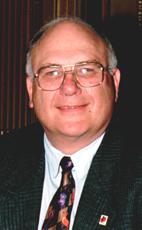Mr. Speaker, earlier today the Minister of Citizenship and Immigration stated that I understood neither the Immigration and Refugee Board nor the refugee process.
As for my supposed misunderstanding of immigration law, section 19.1(a)(i) and (ii) and (b) of the Immigration Act clearly states the grounds by which an individual is to be refused admission into Canada. It states that one is not to be allowed into Canada if they are: first, likely to pose a danger to public health or safety; second, would cause excessive demands on the health care system; or third, are unable to support themselves in society.
Given Mr. Arthur Lasha fits all these grounds, he should not have been allowed into Canada and should be both stripped of his status and returned to his native Poland. In regard to the specifics of the case, according to numerous reports, this HIV infected individual was accepted as a refugee by the IRB based both on the disease he carries and the reaction the Polish people showed toward him.
Mr. Lasha's claims are ludicrous and the IRB should have known the following. First, the Polish parliament is currently in the process of passing a broadly supported bill recognizing same sex marriages. Second, a constitutional amendment recognizing the equality of homosexuality and heterosexuality is in the process of being adopted there. Therefore, the claim that there is systematic discrimination against homosexuals and, as in Mr. Lasha's case, HIV carriers, is groundless.
Clearly Mr. Lasha has not been entirely honest in describing his homeland. The minister has not accurately portrayed the facts in terms of refugee claims based on homosexuality. The minister said that only two such claims have come before the IRB.
In Newfoundland alone the claim has 90 per cent acceptance rate. According to a legal aid official in that province it is becoming a popular approach to staying in this country.
The minister spoke a great deal about Mr. Lasha being a member of a social group, that being by sexual orientation, and cited the Supreme Court of Canada as having made that decision.
In the 1993 case of Canada v. Ward, the Supreme Court set out the guidelines for assessing whether an individual was a member of a social group. There were three possibilities: first, groups defined by an innate or immutable characteristic; second, groups defined by an association so important to their human dignity that they should not be forced to forsake the association; and third, groups defined by a former voluntary status, immutable due to historic permanence.
The court also suggested possible groups for examination, including homosexuality, but added it was the job of legislators, not the courts, to decide whether or not homosexuality could be considered a social group.
Given that the question of whether homosexuality is the result of genetic makeup or environmental influence is far from being settled, the minister cannot say whether Mr. Lasha was or was not a member of a social group.
The IRB was therefore gravely misguided to make this judgment on the assumption that this individual held an innate or immutable characteristic.
To conclude, in this case the IRB was wrong on a number of accounts. It ignored several subsections of section 19 of the Immigration Act, placing an unfair burden on the health care system and Canadian society as a whole.
Second, it failed to examine Polish society and the accepting environment that the government is fostering toward the homosexual community.
Third, it failed to use the definition of social group properly, as outlined by the Supreme Court of Canada.
Given all this, it is clear that the Immigration and Refugee Board has failed those legitimately seeking protection in Canada from well founded persecution. It has failed Canadian society by allowing in those who clearly should not be admitted into this country.
Now that the minister is fully aware of the facts of this case, will he not accurately portray the facts about immigration application and acceptance? Second, will he have this individual deported immediately? Third, will he disband the IRB? Fourth, will he replace the IRB with competent immigration officials armed with well established guidelines centred around helping those from around the world truly in need of immediate protection?

